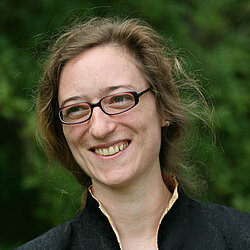Under the conditions of novel and particularly strong dynamic crises with increasing asymmetric, regular as well as hybrid threats, crisis communication is unable to fully influence the information space and to ensure credibility, sovereignty of opinion, trust, reputation as well as instructions on information and behaviour. At the same time, the population’s use of media has markedly changed, and messages propounded by crisis management compete with a multitude of other, often unauthentic, and fake news or are more aware of the disinformation to which they are exposed. The prevention or limitation of damage caused to legally protected goods as the goal of crisis communicative processes are thus specifically at risk, and there is a threat of further damage owing to communication inappropriate to the situation. On that basis, this thesis investigates the conditions under which a holistic spectrum of comprehensive and modified crisis communication in a continually evolving media landscape can, even in future, have a reliable and successful impact vis-à-vis new conflict potential within the meaning of crisis management, and particularly state danger prevention. Here, it is important to explain the extent that, contrary to our conventional understanding, we now have even more need for a strategically focused crisis communication, which, as integral part of crisis management, is equally incorporated into the entire management process. Strengthened in such a way, communication as an independent task in the crisis unit could be effectively and flexibly adapted to the situation in all phases of the management process, and could more vigorously integrate all media available in the whole communication spectrum, particularly new and social media, help to develop and use existing potential and synergies for crisis management by the population, companies and hazard prevention authorities.
Crisis communication in accident and disaster scenarios. Optimising strategic communication measures as part of an effective crisis management against the background of increased potential for hazards and threats.
MEMBER IN THE JOINT ACADEMIC PARTNERSHIP
since
Prof. Dr. Martin Müller
Head of public relation and corporate communication studies (PUK)
Project:
Prof. Dr. Oliver Hahn
Professor Oliver Hahn, PhD, is Professor of Journalism and Vice-Dean for Internationalization and Research in the Faculty of Arts and Humanities at the University of Passau, Germany. He is specialized in international comparative research of journalism, media and communication. He serves as Co-Vice-Chair of the Journalism Research and Education (JRE) section of the International Association for Media and Communication Research (IAMCR) and as Liaison Officer to the World Journalism Education Council (WJEC).
Projects:
- Narration research in the delicate balance between (counter-) public spheres, media manipulation and propaganda
- Panama Papers and football leaks. The way in which international research associations and publishing networks are transforming investigative journalism.
- Being German as a framed narrative? A constructive systemic approach.
- Ethical dimensions of immersive journalism
- Mass Media and Governance: Issues and Challenges to Free Press in contemporary Pakistan

Martin Ruske
Ansbach University of Applied Sciences
Martin Ruske studied political science in Würzberg as well as Jena. Following completion of the M.A, he was a Consultant for International Politics/Security Policy, Crisis Management and Risk Precaution and is now an Administration Officer at an insurance company. Martin Ruske is regularly deployed part-time as a retired Colonel Staff Officer for civilian/military cooperation at the Deputy Commander/Chief of Staff Brandenburg State Command and trains management personnel from disaster protection organisations, risk prevention authorities and companies belonging to critical infrastructure.

